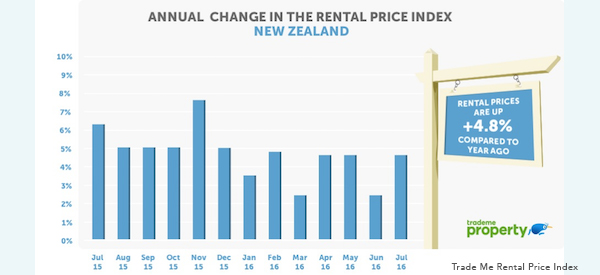Tenants
Rent Arrears Procedures – A Guide for Landlords

Part of property ownership is the effective control of rent arrears. Many landlords take a soft approach to rent arrears and often emotion or a lack of knowledge of what to do results in unnecessary losses. We all know that unless arrears are actioned promptly that bonds will never cover all costs so the proactive control of rent arrears is essential for all owners. This article aims to provide landlords with a systematic process to complete when faced with rent arrears. This process has been developed over 20 years of professional property management and is essential to limit losses and reduce instances of arrears.
In the old days tenants were given the benefit of the doubt and property managers were a little less strict. If a promise was made to remedy in a day or two or a double payment was made next week our Landlords accepted this and property managers recorded the arrangements. This was a product of a time when Landlords and property managers let emotion in to the equation and gave tenants a bit more breathing space. However now property investment is main stream and every cent counts for many investors! The following process is designed to protect the Landlord from the worst case scenario and steps are taken just in case tenants are lying or have no intention to pay rents (this happens more than you would think).
Step 1 – Day 1: A phone call to tenants to advise on the missed payment and that a written notice will be issued immediately (this notice is gentle rent arrears letter but includes all required info for a 10 day notice eg property address, tenants name, date, arrears amount and clause giving 10 working days to remedy the breach in the agreement). If tenants confirm that they will pay the rent in a few days or can they pay double next week then property owners must advise tenants “it is unacceptable to not pay the rent or pay it late” and that action may be taken against them to terminate the tenancy if they don’t remedy the breach ASAP.
Step 2 – Day 3: Phone call or text message
Step 3 – Day 5: A 2nd letter more serious advising that within 24 hours an application to the Tenancy Tribunal may be made for termination of the tenancy.
Step 4 – Day 7 or 8: This is the day that the rent will now fall two weeks behind if rents not paid. Apply to the Tenancy Tribunal, ph call/text & written notice to tenant that an application has been made.
Note: The best policy is that applications to the Tribunal for the recovery of rent arrears should be made on or before the tenant gets two weeks in arrears eg on or before day 7 or 8. DO NOT wait for 10 day notices to expire as bonds will NEVER cover rents by the time you make an application or get to the Tenancy Tribunal (eg. You are planning for worst case scenario). If you make an application before the 10 day notice expires then Tenancy Services will schedule your mediation for the earliest available spot after the 10 days has expired. If a tenant remedies the missed payment you can always withdraw an application. The reason you don’t make an application on day 4, 5 or 6 is that most breaches are remedied within this timeframe and even if you did make an application to the Tribunal on these days you would not get a hearing date any earlier than if you made an application later on day 7 or 8 (as the mediation will still be scheduled after the expiry of a 10 working day letter). It is also important to understand that tenants are not sent letters or called every day as this can be seen as harassment and is unnecessary as it may only antagonise tenants.
If notices go unanswered then you will need to follow up the notice with an application to the Tenancy Tribunal. When making an application to the Tribunal a landlord should always plan for worse case scenario. Don’t just ask for the recovery of rent arrears and assume that tenants will remedy once you have been to court. In your application you need to ask for the ‘termination of the tenancy, payment of rent arrears, and bond refund’. If mediation fails and you find your self in the Tribunal then they only have the power to award you what you have asked for in the original written application.
If you experience arrears problems on an ongoing basis is also worth considering a three strikes and you’re out policy. Although most landlords won’t rent to tenants unless references are obtained, and tribunal database and credit checks completed, sometimes tenants who pass these checks still have arrears problems. If you have to take tenants to mediation or the Tribunal it is usually worth mediating once or twice. However, if a tenant is taken to the tribunal a third time then we recommend not negotiating and termination is requested with the argument that there is clearly a history of ongoing rent problems. Especially since the owner is not only fitting the bill for each application fee but also foregoing the many hours needed to complete a Tribunal hearing & mediation.
In a world where you may wait weeks to get in to the Tribunal and bonds hardly ever cover everything it is important for property managers and Landlords to take action ASAP in order to limit any potential losses. Also, if Landlords are push over’s in the first instance bad tenants will repeat the breaches knowing they can get away with it so a hard line policy is essential. If you take the above action each time then you reduce the likelihood of repeat offending as tenants know they cant get away with it.
All of the above said, hard line rent arrears policies are essential but I’m sure that you will all agree even more important is a strict TENANT SELECTION PROCESS which will reduce the likelihood of problems from day 1.
Tenants
Coworking Countdown – 4 Things to Prepare Before You Move In

The coworking scene has done anything but slowed down. Coworking spaces in Auckland alone vary between your upmarket, corporate office to the trendier, chic ones. Certainly, investing in this type of commercial real estate has never been more attractive. There is a space for everyone in this landscape and for businesses looking for new workspaces there’s not only variety available, there’s options at an affordable price.
When a business has finally found an office, in one of these buildings they have not only found a workspace, they’ve also found community as well. One coworking space – Servcorp – is a good example of the way work and networking have intersected to provide business with the chance to grow. This new way of leasing premises is highly attractive to the leasee and the property owner. Here are some tips for moving into a new coworking space, so the business can prepare to maximise their working experience.
Continue reading to learn what you can do to prepare for your move to your new coworking space to ensure the move is as seamless as possible.
Purposeful Coworking
Coworking presents professionals with the chance to use the space to just work or to build on their professional network. Before getting comfortable in your new office, sit down and take inventory of the tasks beyond work that you would like to accomplish. When writing down your goals and objectives, keep in mind the types of activities that you would like to engage in the space.
Of the many activities, formal networking events and community social events are the types you want to pay attention to if you plan to use the space to build a social network. Not that you have to be out and about every night, but scheduling time to promote your business is one way to maximise the coworking space. Ultimately, if the purpose of coworking is to build a networking platform or to grow your business, find ways to incorporate the more social aspect of the space.
Tool Of The Trade
Another thing that professionals moving into a coworking space should prepare for is knowing what amenities the space provides. Standard spaces fit out the office with exceptional IT services and office equipment, but other amenities include programs and conferences that help teach entrepreneurs how to build their businesses. Before moving into your space, consider checking out all the perks of working in your coworking space.
Moreover, make sure you know what is available for use in the office, so as to bring supplies if necessary. While staplers and other office products come standard in a conventional office, some spaces might not make this available to employees. On a larger scale, make sure there is a receptionist available, and if not, know exactly how to retrieve any messages.
Change Of Business Address
Before leaving your conventional or home office, make sure that clients and other important people know your new location and phone number. One simple way to do this is to email clients of your relocation as to avoid any mix-ups. Furthermore, make sure to forward any business mail to your new location, as to avoid missing important parcels. Finally, make sure you know the building’s office hours for scheduling appointments.
Event Calendar
Check out the coworking space’s event calendar. In addition to the numerous networking opportunities in the day, many coworking communities hold events to get the professionals to engage with each other. Make an exerted effort to attend at least a few of the events every week to raise your business’s profile. You never know what opportunity awaits when engaging people from your profession and others.
Preparing And Putting Coworking To Work
Coworking makes moving effortless simply by alleviating much of the work associated with relocating. You can, however, maximise your move by putting together an agenda of how you plan to use the work to benefit your business. Your plan will help you use your space more effectively for building a platform for business success.
Tenants
Auction Site For Renters
New Zealand will soon see the rise of a new auction site for renters. Just in on stuff.co.nz Rentberry has confirmed they will be launching here and in Australia. The online service offers renters the opportunity to bid for rental properties. Landlords set the ‘reserve’ or rent level they hope will generate lots of prospective tenants interest and then the bidding war takes off.

New Zealand will soon see the rise of a new auction site for renters. Just in on stuff.co.nz Rentberry has confirmed they will be launching here and in Australia. The online service offers renters the opportunity to bid for rental properties. Landlords set the ‘reserve’ or rent level they hope will generate lots of prospective tenants interest and then the bidding war takes off. Landlords get the final say on whom is the successful applicant and while they may review the highest bids first, they won’t be choosing the tenant just based on what they’re prepared to pay.
An Auckland property management company spokesperson said common-sense will prevail among Landlords. Securing long term tenancies with tenants that have good credit histories and references will remain the top priority. Prospective tenants information is available to the Landlord in the service so they can select the tenant without delay.
Rentberry will provide more transparency of the selection process with prospective tenants and Landlords learning what the true market value is for their property. This is a positive move for investors especially those who are new to the rental market and Landlords whom self manage their rental properties and may currently be charging more or less rent.
There has been some healthy criticism of the service even in it’s infancy. In America affordable housing advocates are angered by the service and tenant groups in Australia are wary that the service will push up prices.
Rentberry has been operating in the USA since 2016 and is currently expanding into 1000 cities there. It’s focus is on renting Apartments and this is where we see the service take off in our neck of the woods in our main centres in New Zealand.
This blog article was written for PropertyBlogs by Mobilize Mail.
Tenants
Tenants Let Off With 4.8% Increase
Weekly rents rose just 4.8 percent in the twelve months to July 2016 according to Trade Me Rent Price Index. Tenants will be relieved Landlords are being realistic and not keen on hiking rents arbitrarily. Property sales have slowed and the average asking price has dropped significantly up ten percent since July 2015.

Weekly rents rose just 4.8 percent in the twelve months to July 2016 according to Trade Me Rent Price Index. Tenants will be relieved Landlords are being realistic and not keen on hiking rents arbitrarily
Property sales have slowed and the average asking price has dropped significantly up ten percent since July 2015. Of particular interest is the slow down in property asking prices in Auckland where a typical property listed in June was just $3,750 less than the asking price in July. According to this article Investors are buying most of the houses.
In Auckland City and on the North Shore investors have purchased 50 percent of the properties on the market. A North Shore and Auckland City property management company spokesperson said investors are listing new properties with them. In Auckland City it’s mostly apartments and there’s high demand for quality living quarters downtown.
“In July 2011 New Zealand’s median weekly rent was $350 a week, that has risen by $90 a week over the past 5 years, while at the same time the increase in the average asking price of a typical New Zealand property has risen by $200,000 an increase of 51 per cent.”
While there’s the odd sensational article on ‘greedy landlords’ hiking rents to unprecedented levels evidence proves otherwise and tenants are the winners.
In the regions there has been some catch up with rents rising by double digit percentages in Northland, Manawatu, and Marlborough. However urban average rents have remained stagnant.
This blog article was written for PropertyBlogs by Mobilize Mail.
-

 Management5 years ago
Management5 years agoHome Insulation Requirements
-

 Investment5 years ago
Investment5 years agoAnother date NZ property investors are dreading
-

 Accounting & Finance5 years ago
Accounting & Finance5 years agoLow Interest Rates Winners and Losers
-

 Build5 years ago
Build5 years agoHow to Choose and Purchase a Suitable Property to Subdivide
-

 Management6 years ago
Management6 years agoAttracting More Business Travellers To Your Auckland Airbnb Property
-

 Investment6 years ago
Investment6 years agoWould You Be a Landlord in 2018?
-

 Tenants6 years ago
Tenants6 years agoCoworking Countdown – 4 Things to Prepare Before You Move In
-

 Renovations6 years ago
Renovations6 years agoFive easy steps to boost the appeal of your home







